A Strategic Advantage
Indonesia is a country that has been gaining attention in recent years as a sourcing destination for businesses around the world. Its strategic geographic location, competitive labor market, rich natural resources, favorable business environment, growing economy, robust manufacturing sector, cultural diversity and craftsmanship, infrastructure development, and trade agreements and partnerships make it an attractive option for businesses looking to diversify their supply chain.
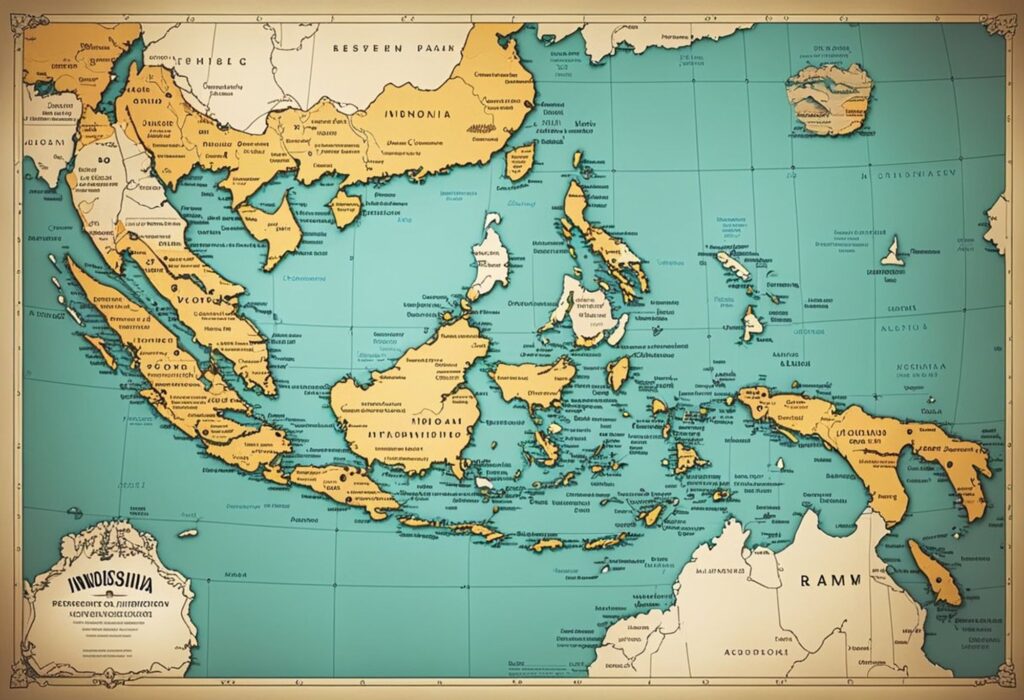
Indonesia is located in Southeast Asia, making it a strategic location for businesses looking to source products from Asia and distribute them globally. The country has a population of over 270 million, making it the fourth most populous country in the world. This large population provides a pool of skilled and unskilled labor, which is available at a competitive cost.
Indonesia is also rich in natural resources, including oil, gas, coal, and minerals. This has led to the development of a robust manufacturing sector, which is capable of producing a wide range of products, from traditional handicrafts and textiles to modern electronics and automotive parts. The country’s favorable business environment, growing economy, and infrastructure development have also contributed to the growth of its manufacturing sector.
Key Takeaways
- Indonesia’s strategic geographic location, competitive labor market, and rich natural resources make it an attractive sourcing destination for businesses.
- The country’s favorable business environment, growing economy, and robust manufacturing sector provide opportunities for businesses to diversify their supply chain.
- Indonesia’s cultural diversity and craftsmanship, infrastructure development, and trade agreements and partnerships further enhance its appeal as a sourcing destination.
Strategic Geographic Location
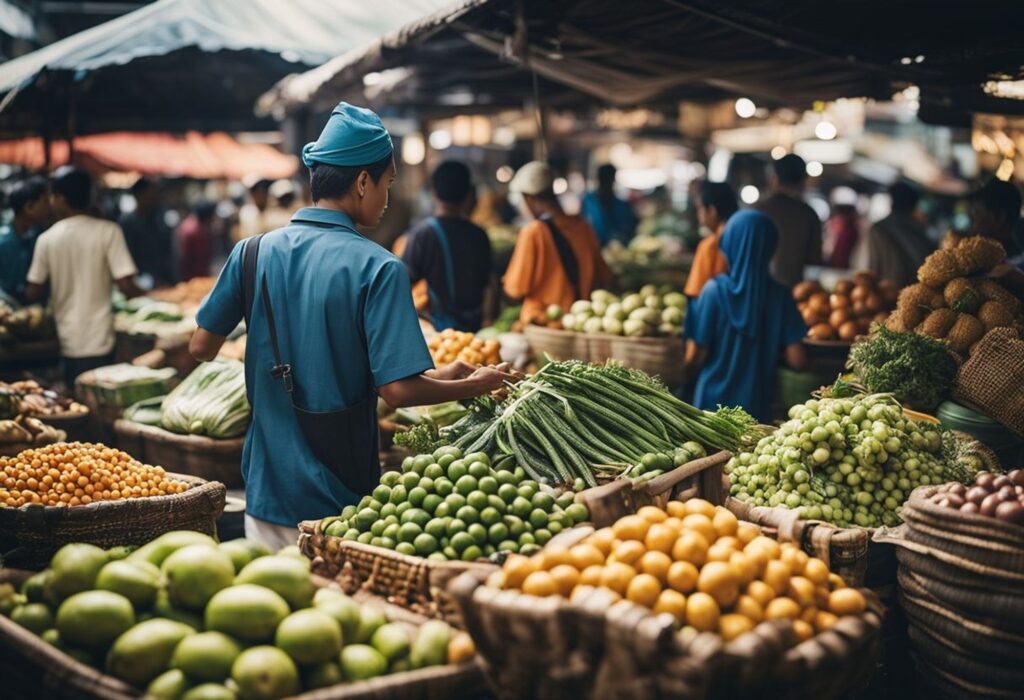
Indonesia’s strategic location in Southeast Asia makes it a key player in the region’s economy. This location provides businesses with access to ASEAN markets and global trade routes, making it an attractive location for sourcing and manufacturing.
Access to ASEAN Markets
Indonesia is a member of the Association of Southeast Asian Nations (ASEAN), a regional intergovernmental organization that promotes economic cooperation and integration. This membership provides businesses with access to a market of over 650 million people, making it an attractive location for businesses looking to expand their reach in the region.
Indonesia’s membership in ASEAN also provides businesses with access to the ASEAN Free Trade Area (AFTA), which eliminates tariffs on goods traded within the region. This makes Indonesia an ideal location for businesses looking to take advantage of the benefits of regional trade agreements.
Global Trade Routes
Indonesia’s strategic location also provides businesses with access to global trade routes. Its location between the Indian and Pacific Oceans makes it an ideal location for businesses looking to trade with countries in both regions.
Indonesia is also home to several major ports, including the Port of Tanjung Priok, which is one of the busiest ports in Southeast Asia. These ports provide businesses with access to global shipping routes, making it easier to transport goods to markets around the world.
Overall, Indonesia’s strategic geographic location provides businesses with access to ASEAN markets and global trade routes, making it an attractive location for sourcing and manufacturing.
Competitive Labor Market

Indonesia has a large and skilled workforce that is attractive to businesses looking to source products. The country has a population of over 270 million people, with a median age of 30 years old, making it the fourth most populous country in the world. This large population has led to a significant pool of workers, with around 130 million people currently employed.
Skilled Workforce
The Indonesian workforce is known for its proficiency in a variety of industries, including textiles, electronics, and automotive. The country has a strong education system, with a large number of universities and technical schools producing graduates with specialized skills. Additionally, the government has implemented programs to improve the quality of education and training, ensuring that the workforce remains competitive in the global market.
Labor Costs
One of the most significant advantages of sourcing from Indonesia is the low labor costs. The country has some of the lowest labor costs in Southeast Asia, with wages that are around one-fifth of China’s. This makes it an attractive destination for businesses looking to reduce their production costs. However, it is important to note that the minimum wage in Indonesia varies depending on the region and industry, so businesses should research the specific wage requirements before making any decisions.
In addition to low labor costs, the Indonesian government has implemented policies to encourage investment in the country. For example, the government offers tax incentives for businesses that invest in certain industries or regions. This, coupled with the competitive labor market, makes Indonesia an attractive destination for businesses looking to source products.
Overall, the competitive labor market in Indonesia makes it an attractive destination for businesses looking to source products. The large and skilled workforce, combined with low labor costs and government incentives, make it a compelling option for businesses looking to reduce production costs and increase their bottom line.
Rich Natural Resources
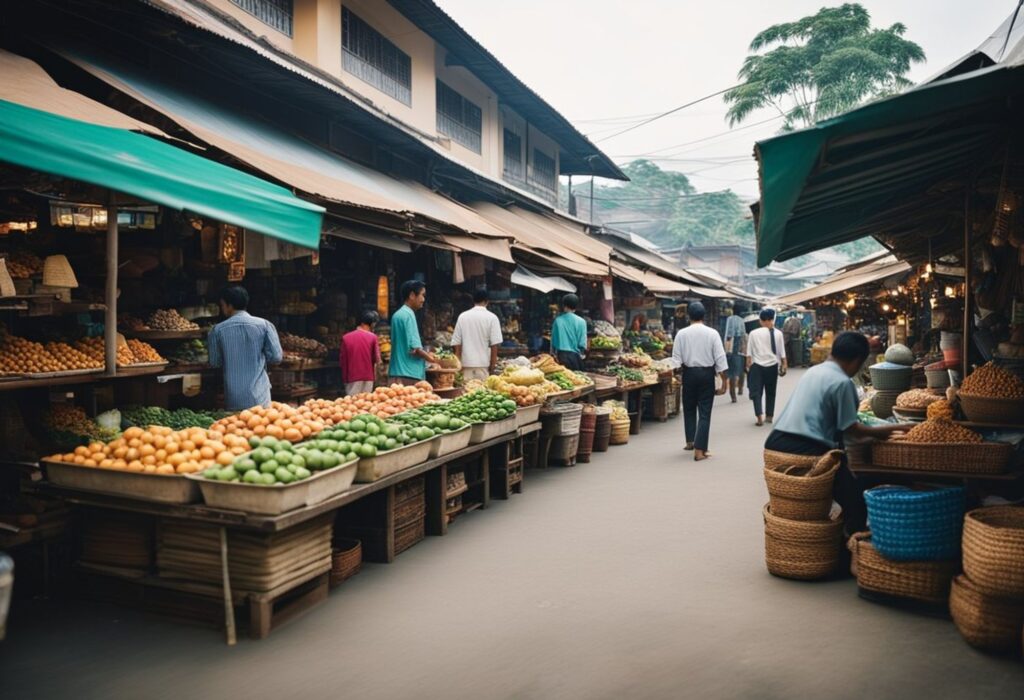
Indonesia is a country rich in natural resources, making it an attractive location for businesses looking to source raw materials. The country is known for its abundant reserves of minerals, oil, and natural gas, which make up a significant portion of its economy. However, Indonesia’s natural resources extend beyond these commodities, with a diverse range of agricultural products also available.
Commodities
Indonesia is one of the world’s largest producers of several commodities, including palm oil, rubber, and tin. The country is also rich in coal, with vast reserves of the mineral found throughout the archipelago. Additionally, Indonesia has significant reserves of copper, gold, and nickel, making it a significant player in the global mining industry.
Agricultural Products
Indonesia’s tropical climate and fertile soil make it an ideal location for growing a wide range of crops. The country is the world’s largest producer of palm oil, which is used in a variety of products, including food, cosmetics, and biofuels. Other agricultural products grown in Indonesia include coffee, cocoa, spices, and tropical fruits such as bananas, mangoes, and pineapples.
Overall, Indonesia’s rich natural resources make it an attractive location for businesses looking to source raw materials. Whether it’s commodities such as coal and tin or agricultural products like palm oil and coffee, Indonesia has a diverse range of resources that can be used in a variety of industries.
Favorable Business Environment
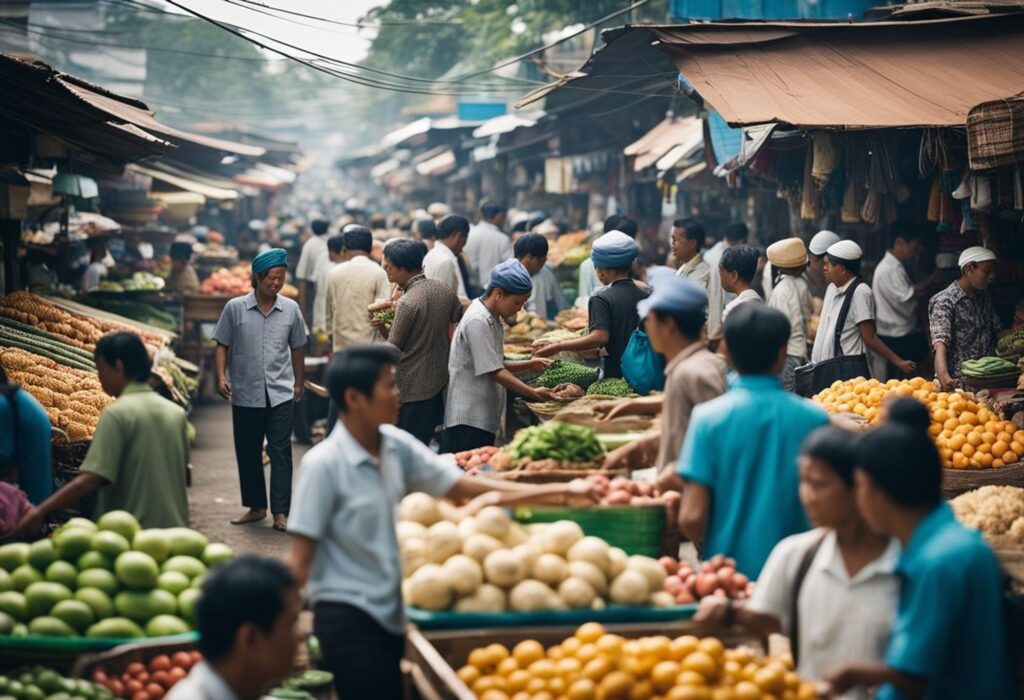
Indonesia offers a favorable business environment for companies looking to source products from the country. The government has implemented various incentives and regulations to encourage foreign investment and make it easier for businesses to operate in the country.
Government Incentives
The Indonesian government has implemented several incentives to attract foreign investment and promote economic growth. One of the most significant incentives is the tax holiday program, which provides tax exemptions or reductions for eligible businesses. The program aims to encourage investment in industries that are considered strategic for the country’s development, such as infrastructure, manufacturing, and tourism.
Another incentive is the free trade agreement (FTA) program, which allows businesses to import and export goods with reduced or eliminated tariffs. Indonesia has signed several FTAs with countries such as Japan, China, and Australia, making it easier for businesses to trade with these countries.
Ease of Doing Business
Indonesia has made significant progress in improving its ease of doing business ranking in recent years. According to the World Bank’s Ease of Doing Business Report 2021, Indonesia ranks 140 out of 190 countries, up from 144 in 2020. The country has implemented reforms to simplify business registration, streamline tax payments, and improve access to credit.
Additionally, Indonesia has a relatively low cost of living compared to other countries in the region, making it an attractive location for businesses looking to set up operations. The country also has a large and growing consumer market, providing opportunities for businesses to expand their customer base.
Overall, Indonesia’s favorable business environment, government incentives, and improving ease of doing business make it an attractive location for companies looking to source products from the country.
Growing Economy
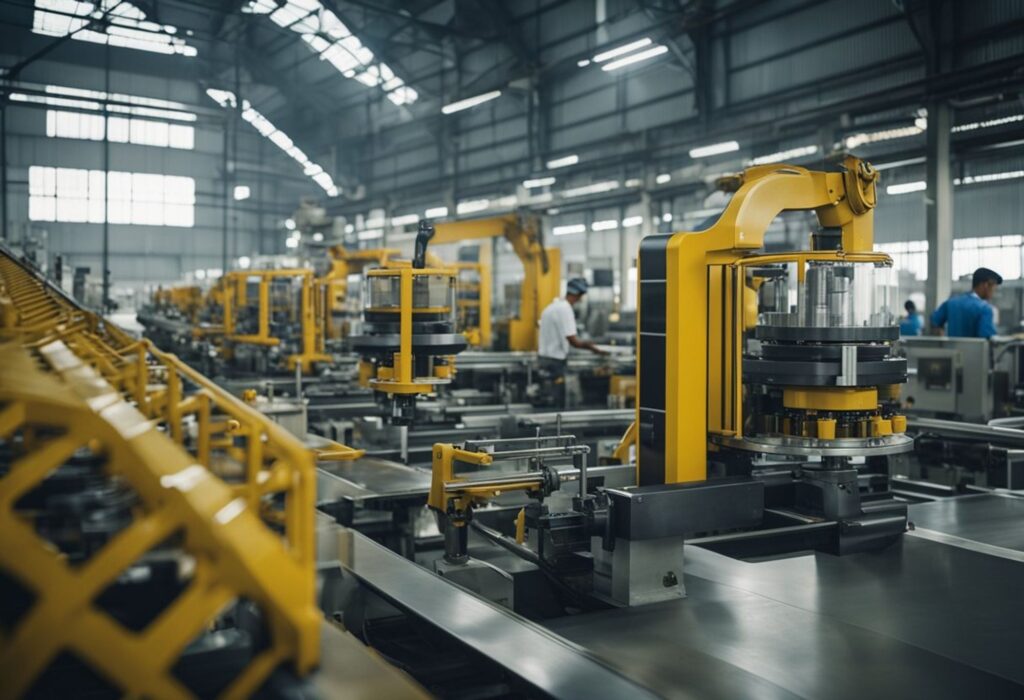
Indonesia is one of the fastest-growing economies in the world. According to the International Monetary Fund (IMF), the country’s GDP is expected to grow by 4.5% in 2022 and 5.2% in 2023. This growth is driven by several factors, including a large and growing consumer market, a strategic location, and a government committed to economic reform.
Economic Indicators
Indonesia’s economy is supported by several key indicators. The country has a population of over 270 million people, making it the fourth most populous country in the world. This large consumer market provides significant opportunities for businesses looking to expand their operations in the region.
In addition, Indonesia has a strategic location, with access to major shipping lanes and a growing network of transportation infrastructure. This makes it an ideal location for businesses looking to source products or establish manufacturing operations in the region.
Finally, Indonesia has a government committed to economic reform. In recent years, the government has implemented a series of reforms aimed at improving the business environment and attracting foreign investment. These reforms have included streamlining regulations, reducing bureaucracy, and improving infrastructure.
Investment Opportunities
Indonesia offers a range of investment opportunities for businesses looking to expand their operations in the region. The country has a growing middle class, which is expected to reach 135 million people by 2030. This presents significant opportunities for businesses looking to tap into this growing consumer market.
In addition, Indonesia has a range of natural resources, including oil, gas, coal, and minerals. The country is also a major producer of agricultural products, including palm oil, rubber, and coffee. This presents significant opportunities for businesses looking to source these products from the region.
Finally, Indonesia has a well-established manufacturing sector, with a range of capabilities across various industries. The country is a major producer of textiles, electronics, and automotive parts, among other products. This presents significant opportunities for businesses looking to establish manufacturing operations in the region.
Overall, Indonesia’s growing economy, large consumer market, strategic location, and commitment to economic reform make it an attractive destination for businesses looking to expand their operations in the region.
Robust Manufacturing Sector
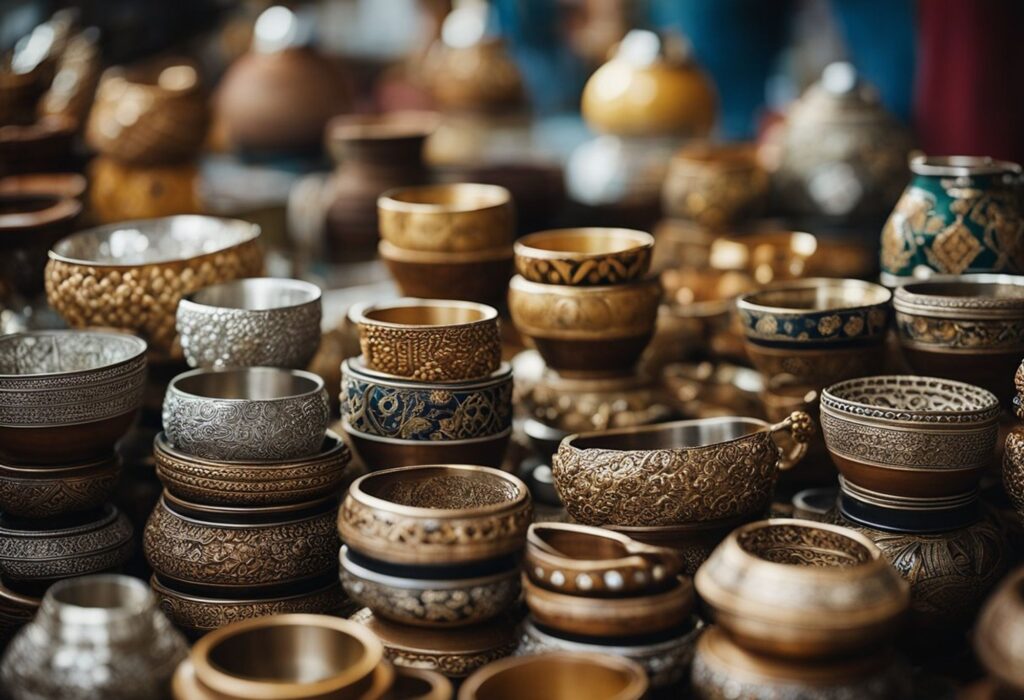
Indonesia has a robust manufacturing sector that is continually expanding and improving. The country’s manufacturing sector is the largest in Southeast Asia, with textiles, automotive, and electronics being the top three industries.
Textiles
The textile industry in Indonesia is one of the largest in the world, with the country being the fourth-largest textile producer globally. The industry is supported by a large workforce, low labor costs, and a favorable investment climate. Indonesia’s textile industry is also known for its high-quality products, with many international brands sourcing their fabrics from the country.
Automotive
Indonesia’s automotive industry is one of the fastest-growing in the region, with the country being the largest car manufacturer in Southeast Asia. The industry is supported by a large domestic market, a skilled workforce, and favorable government policies. Many international car manufacturers have set up production facilities in Indonesia, attracted by the country’s low labor costs and favorable investment climate.
Overall, Indonesia’s robust manufacturing sector provides many opportunities for businesses looking to source products from the country. The textile and automotive industries are just two examples of the many manufacturing sectors that are thriving in Indonesia. With a large and skilled workforce, low labor costs, and a favorable investment climate, Indonesia is an attractive destination for businesses looking to diversify their supply chains and reduce costs.
Cultural Diversity and Craftsmanship
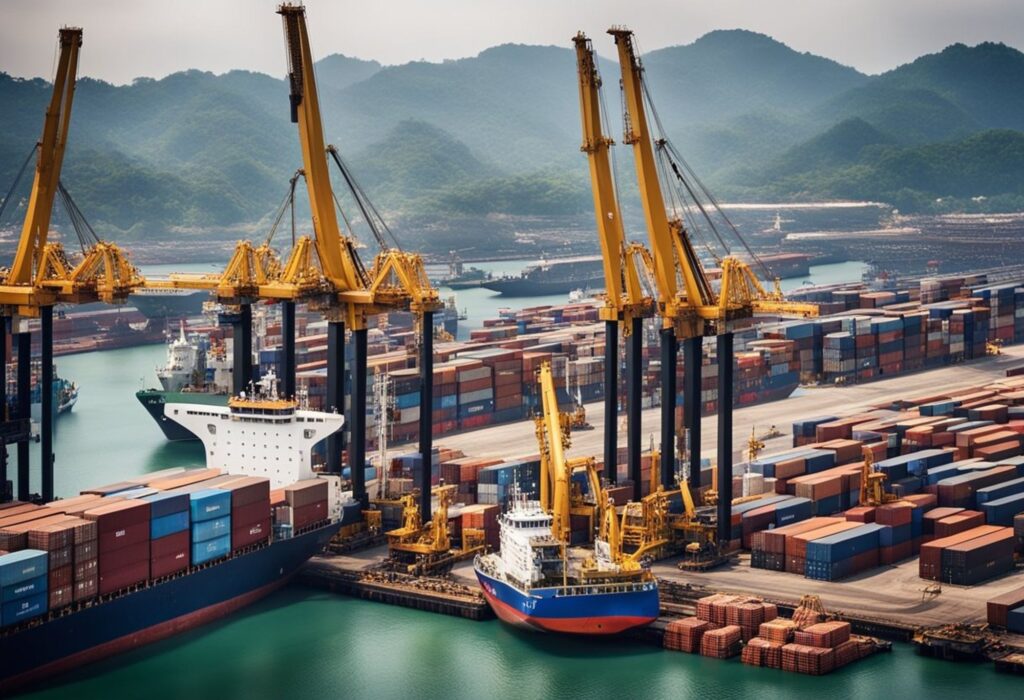
Indonesia is a country that is rich in cultural diversity, and this is reflected in its handicrafts and traditional industries. The country has over 300 ethnic groups, each with its own unique customs, traditions, and artistic styles. As a result, Indonesia has a vast array of handicrafts that are made using traditional techniques and materials.
Handicrafts
Indonesia is famous for its handicrafts, which are made using a variety of materials such as wood, metal, and textiles. The country is known for its intricate wood carvings, which are made using a technique called ukir. This technique involves carving intricate patterns and designs into the wood, resulting in beautiful and unique pieces of art.
Indonesia is also famous for its batik textiles, which are made using a wax-resist dyeing technique. This technique involves applying wax to the fabric in specific patterns before dyeing it. The wax resists the dye, resulting in beautiful and intricate patterns. Batik textiles are used to make a variety of products, including clothing, bags, and home decor items.
Traditional Industries
Indonesia has a number of traditional industries that are still thriving today. One of these industries is the production of traditional Indonesian weapons, such as the keris. The keris is a type of dagger that has a wavy blade and is often adorned with intricate carvings. The production of keris is a highly skilled craft that has been passed down from generation to generation.
Another traditional industry in Indonesia is the production of gamelan instruments. Gamelan is a traditional Indonesian musical ensemble that consists of a variety of instruments, including drums, gongs, and xylophones. The instruments are made using traditional techniques and materials, resulting in a unique sound that is synonymous with Indonesian music.
In conclusion, Indonesia’s cultural diversity and traditional industries make it an ideal destination for businesses looking to source unique and high-quality products. The country’s skilled artisans and craftsmen produce a wide variety of handicrafts and traditional products that are sure to impress customers.
Infrastructure Development
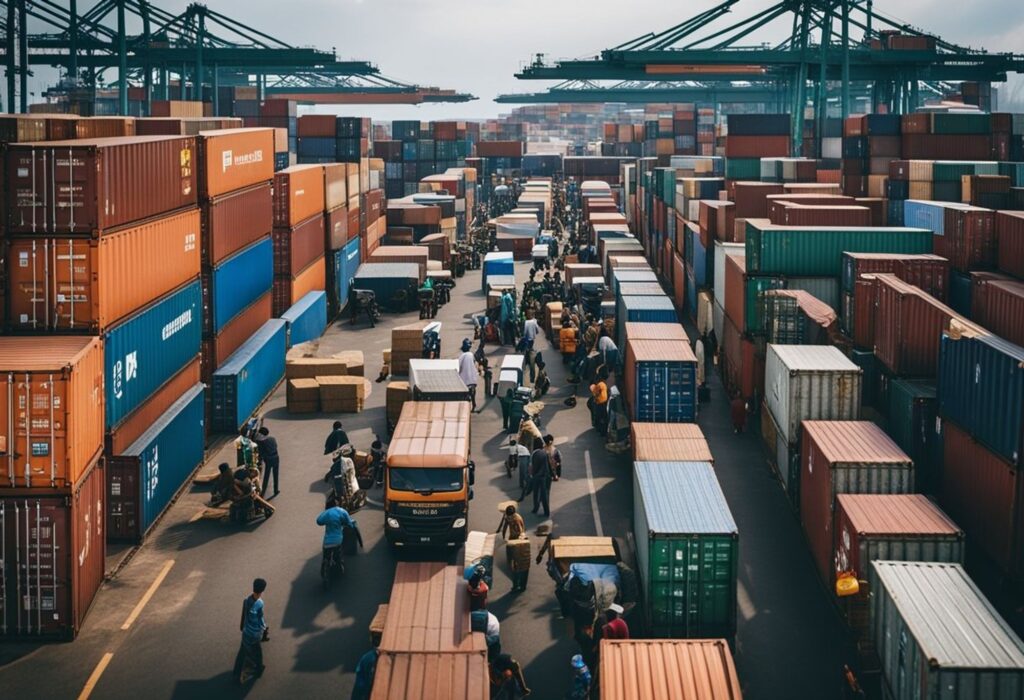
Indonesia is a vast archipelago that faces challenges in terms of infrastructure development. However, the government has made significant efforts to address these challenges in recent years. This section will discuss the transportation and technology infrastructure development in Indonesia.
Transportation
Indonesia’s transportation infrastructure has been a major bottleneck for economic growth. However, the government has initiated several infrastructure projects to improve the transportation network. One of the significant projects is the Trans-Sumatra Toll Road, which connects Aceh in the north to Lampung in the south. The project is expected to reduce travel time and transportation costs significantly. Additionally, the government plans to build a high-speed railway network that will connect Jakarta to Surabaya, the second-largest city in Indonesia.
However, despite these initiatives, Indonesia’s transportation infrastructure still faces challenges. Issues such as traffic congestion, port inefficiencies, and uneven quality of transportation networks can lead to delays and increased logistics costs.
Technology
Indonesia’s technology infrastructure is rapidly developing, with the government promoting the use of technology to improve the country’s economic growth. The government has implemented several initiatives such as the Palapa Ring project, which aims to provide high-speed internet connectivity to all parts of the country. Additionally, the government has launched the Making Indonesia 4.0 program, which promotes the use of Industry 4.0 technologies such as artificial intelligence, the Internet of Things, and robotics.
However, despite these initiatives, Indonesia’s technology infrastructure still faces challenges. The country has a low level of digital literacy, and there is a lack of skilled workers in the technology sector. Additionally, the cost of internet connectivity is relatively high, limiting access to technology for many Indonesians.
In conclusion, Indonesia’s infrastructure development is ongoing, with significant efforts being made to improve the transportation and technology infrastructure. While there are still challenges to be addressed, Indonesia’s infrastructure development presents opportunities for businesses to source from the country.
Trade Agreements and Partnerships
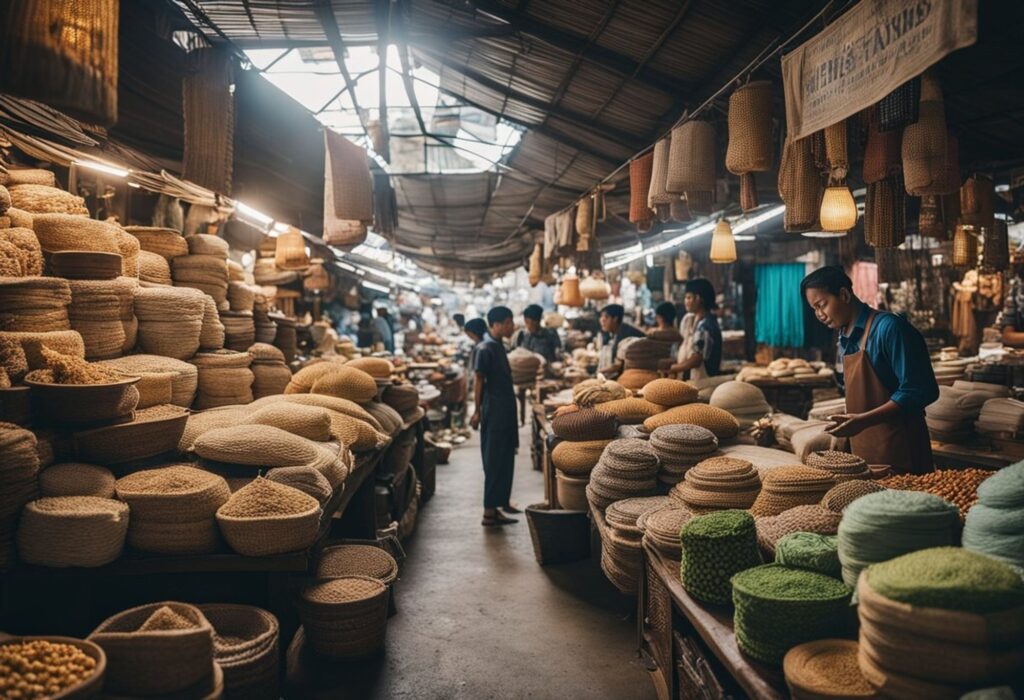
Bilateral Agreements
Indonesia has a number of bilateral agreements with other countries that can make it an attractive sourcing destination for businesses. For example, Indonesia has a preferential trade agreement with Australia, which eliminates tariffs on a range of goods and services. Additionally, Indonesia has a comprehensive economic partnership agreement with Japan, which aims to promote trade and investment between the two countries.
Another notable bilateral agreement is the Indonesia-Korea Comprehensive Economic Partnership, which eliminates a significant portion of tariffs on exports between the two countries. This agreement is expected to benefit Indonesia’s fisheries and agriculture sectors, while also strengthening South Korea’s automotive and industrial sectors.
Multilateral Cooperation
Indonesia is a member of the Association of Southeast Asian Nations (ASEAN), which has a free trade area that includes Brunei Darussalam, Cambodia, Indonesia, Laos, Malaysia, Myanmar, the Philippines, Singapore, Thailand, and Vietnam. As a result, businesses sourcing from Indonesia can access a market of over 650 million people, making it an attractive destination for companies looking to expand their operations in Southeast Asia.
Furthermore, Indonesia is a member of the Regional Comprehensive Economic Partnership (RCEP), which is the largest regional free trade agreement outside of the World Trade Organization. The RCEP includes 10 ASEAN countries and five non-ASEAN countries, including China, Japan, South Korea, Australia, and New Zealand. The agreement aims to reduce tariffs and promote trade and investment between the participating countries.
In summary, Indonesia’s bilateral agreements with countries such as Australia, Japan, and Korea, as well as its membership in ASEAN and the RCEP, make it an attractive sourcing destination for businesses looking to expand their operations in Southeast Asia and beyond.
Frequently Asked Questions
What are the key benefits of manufacturing in Indonesia for international businesses?
Indonesia offers a range of benefits for international businesses looking to manufacture their products. These benefits include competitive labor costs, a large and growing domestic market, a strategic location in Southeast Asia, and a well-established infrastructure. Additionally, the country has a robust legal framework that protects foreign investors and offers a range of incentives to encourage foreign investment.
How do Indonesia’s manufacturing capabilities compare with other Southeast Asian nations?
Indonesia has a diverse manufacturing sector that is competitive with other Southeast Asian nations. The country has a strong manufacturing base in industries such as textiles, electronics, automotive, and food processing. Indonesia’s manufacturing sector is also supported by a large and growing domestic market, a skilled workforce, and a well-established infrastructure.
What are the top industries in Indonesia that attract foreign business investments?
Indonesia has a number of industries that are attractive to foreign investors. These include automotive, electronics, textiles, food processing, and mining. The country also has a large and growing domestic market, which makes it an attractive destination for businesses looking to expand their operations.
How does Indonesia’s economic climate support foreign manufacturing partnerships?
Indonesia has a stable economic climate that is supportive of foreign manufacturing partnerships. The country has a well-established legal framework that protects foreign investors and offers a range of incentives to encourage foreign investment. Additionally, Indonesia’s government is committed to improving the country’s infrastructure and creating a favorable business environment for foreign investors.
What incentives does the Indonesian government offer to foreign companies for sourcing products?
The Indonesian government offers a range of incentives to foreign companies for sourcing products. These incentives include tax holidays, reduced import duties, and simplified customs procedures. Additionally, the government has established special economic zones that offer additional benefits to foreign investors, such as streamlined regulatory processes and access to infrastructure.
How do Indonesia’s labor costs and workforce skills impact manufacturing efficiency for businesses?
Indonesia’s labor costs are among the most competitive in the region, making it an attractive destination for businesses looking to lower their production costs. Additionally, Indonesia has a large and growing pool of skilled workers, particularly in the manufacturing sector. This skilled workforce can help businesses improve their manufacturing efficiency and productivity.
Discover Why Every Business Should Consider Sourcing from Indonesia with Buyamia!
Uncover the advantages of tapping into Indonesia’s diverse and rich market for high-quality products. Learn how sourcing from Indonesia can enhance your supply chain, reduce costs, and boost your business growth. Click here to explore Buyamia’s insights and transform your sourcing strategy today!

Leave a Reply